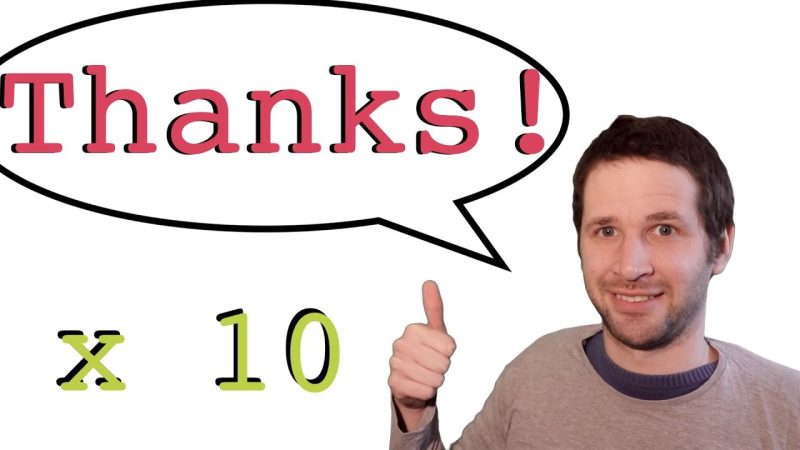Expressing gratitude is a universal human experience, and knowing how to do so in different languages can enhance your cultural interactions. The Dutch language, rich in expression, offers various ways to say “thank you.” In this article, we will explore how to say thank you in Dutch language creatively, allowing you to express your appreciation in meaningful ways. Let’s dive into the nuances and cultural significance of gratitude in Dutch!
The Basic “Dank je wel”
The most straightforward way to express thanks in Dutch is “Dank je wel,” which translates to “Thank you.” This phrase is suitable for informal situations, such as when thanking friends or acquaintances. Understanding how to say thank you in Dutch language begins with this essential expression.
To add a touch of formality, you can say “Dank u wel,” which is appropriate when addressing someone you don’t know well or in a professional setting. The distinction between “je” (informal) and “u” (formal) reflects the Dutch culture’s emphasis on politeness.
Emphasizing Gratitude with “Heel erg bedankt”
When you want to express deeper appreciation, “Heel erg bedankt” is the way to go. This phrase means “Thank you very much.” It’s a fantastic way to show that you truly value someone’s help or support. Incorporating this expression into your vocabulary is a great way to master how to say thank you in Dutch language.
Using “heel erg” emphasizes your gratitude, making it sound heartfelt and sincere. This expression is perfect for situations where someone has gone above and beyond for you.
Using “Dank je” for a Casual Touch
For a more relaxed approach, simply saying “Dank je” is a great option. This casual way to say “thank you” is commonly used among friends and family. It reflects a friendly and informal relationship, and understanding how to say thank you in Dutch language in this manner can help you connect more with locals.
When you’re in a laid-back environment, feel free to use “Dank je.” It shows appreciation without the weight of formality, making it ideal for casual interactions.
Saying “Bedankt” – A Versatile Choice
“Bedankt” is another versatile term for “thank you.” It can be used in both formal and informal contexts, making it a reliable choice when unsure of which expression to use. Learning how to say thank you in Dutch language often involves mastering this simple yet effective term.
This word is easy to remember and can be used in various situations, from casual gatherings to professional settings. Its versatility makes it a favorite among Dutch speakers.
Adding Personal Touch with “Ik waardeer het”
If you want to convey a more profound sense of appreciation, saying “Ik waardeer het” translates to “I appreciate it.” This expression adds a personal touch, indicating that you not only recognize the action but also value the person’s effort. It is a more formal way of saying thank you and shows an understanding of the nuances in how to say thank you in Dutch language.
Using this phrase in your interactions can foster a more meaningful connection, showcasing your thoughtfulness and gratitude.
Expressing Gratitude with “Wat aardig van je!”
Another creative way to show appreciation is by saying “Wat aardig van je!” which means “How kind of you!” This phrase not only thanks someone but also highlights their kindness. It adds a layer of warmth to your gratitude and showcases your awareness of their good deed. Learning how to say thank you in Dutch language includes recognizing the kindness behind actions.
Using this phrase can brighten someone’s day and make your gratitude feel more genuine and heartfelt.
Combining Gratitude with “Ik ben je dankbaar”
For a more poetic expression of gratitude, you can say “Ik ben je dankbaar,” meaning “I am grateful to you.” This phrase captures a more profound sense of appreciation and reflects a sincere acknowledgment of someone’s impact on your life. It emphasizes the emotional aspect of gratitude, showcasing how to express thanks beyond the basic phrases.
Incorporating this expression into your vocabulary demonstrates a deeper understanding of how to say thank you in Dutch language, showcasing your linguistic and cultural awareness.
Creative Alternatives: A Personal Note
Sometimes, a handwritten note or a personal message can express gratitude more creatively than words alone. Consider writing a note saying “Dank je wel voor alles” (“Thank you for everything”). This personal touch can make your appreciation feel more substantial and special. Learning how to say thank you in Dutch language can extend beyond spoken words to thoughtful gestures.
Incorporating creative alternatives like notes or small gifts can strengthen your bonds and convey your gratitude in unique ways.
Conclusion
Understanding how to say thank you in Dutch language involves more than just memorizing phrases; it’s about connecting with people and expressing genuine appreciation. From the basic “Dank je wel” to the more heartfelt “Ik ben je dankbaar,” each expression serves a unique purpose in conveying your gratitude. Whether in casual or formal settings, knowing these phrases can enrich your interactions in Dutch-speaking environments.
By using these creative ways to say thank you, you can foster better relationships and show your appreciation for others’ efforts. Embrace the beauty of the Dutch language and make it a habit to express gratitude in various forms!
FAQs
1. What is the most common way to say thank you in Dutch?
The most common way to say thank you in Dutch is “Dank je wel.”
Q2. Can I use “Dank je” in formal situations?
No, “Dank je” is informal. Use “Dank u” for formal contexts.
Q3. What does “Heel erg bedankt” mean?
“Heel erg bedankt” means “Thank you very much” and is used to express deeper appreciation.
Q4. How do you say “I appreciate it” in Dutch?
You can say “Ik waardeer het” to express appreciation.
Q5. Are there alternative ways to express gratitude beyond words?
Yes, writing a note or giving a small gift can creatively express gratitude.
Also read: Weed Cafe Rotterdam: 10 Exciting Events You Can’t Miss









